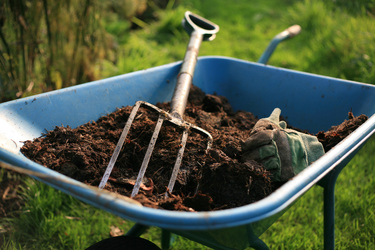
Summer and hotter temperatures are finally upon us, and we aren’t the only ones feeling the heat – your garden will be suffering as well. But rather than increasing the amount of water you feed your garden, there are other ways to help it survive through the warmer months.
One of the first things you should do is add mulch to your garden. Adding mulch can help preserve moisture in the soil, which reduces the amount of water you will need to use.
According to Sustainable Gardening Australia, mulch performs a variety of other functions in the garden as well:
Here are a few tips from Sustainable Gardening Australia on how to mulch your garden:
Following these steps will mean you have mulched well.
How often?
Over time organic mulches break down, contributing beneficially to soil structure. Fine mulches will break down quicker than more coarse materials and so will need topping up more often. A yearly top up is usually enough.
The length of time that it takes for a mulch to break down determines how rapidly the plants will be able to access the nutrients in the mulch. Some mulches as they break down may actually take nutrients away from the soil, this effect is only shot-term but in these instances it may be necessary to add manure or blood and bone prior to mulching.
Hi there,
Would you like to receive home decor
ideas and DIY tips to your inbox?
Subscribe to our mailing list!

